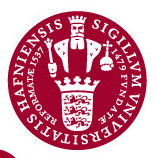Diabetes - The Essential Facts - What Role Does Nutrition Play ? (15:25)
(View Complete Item Description)This presentation focus on which role nutrition plays in developing diabetes and how obesity affects diabetes development. Obesity and weight gain dramatically increase the risk of developing type 2 diabetes. But it’s not only the total calorie intake and the BMI that counts, so does the distribution between fat, protein and carbohydrates, in other words the composition of nutritions. In continuation of this it will be discussed how a restricting intake of carbohydrates might be the way to reduce or even eliminate the use of medication in diabetes treatments. Narrator: Richard Steed.
Material Type: Lecture




















